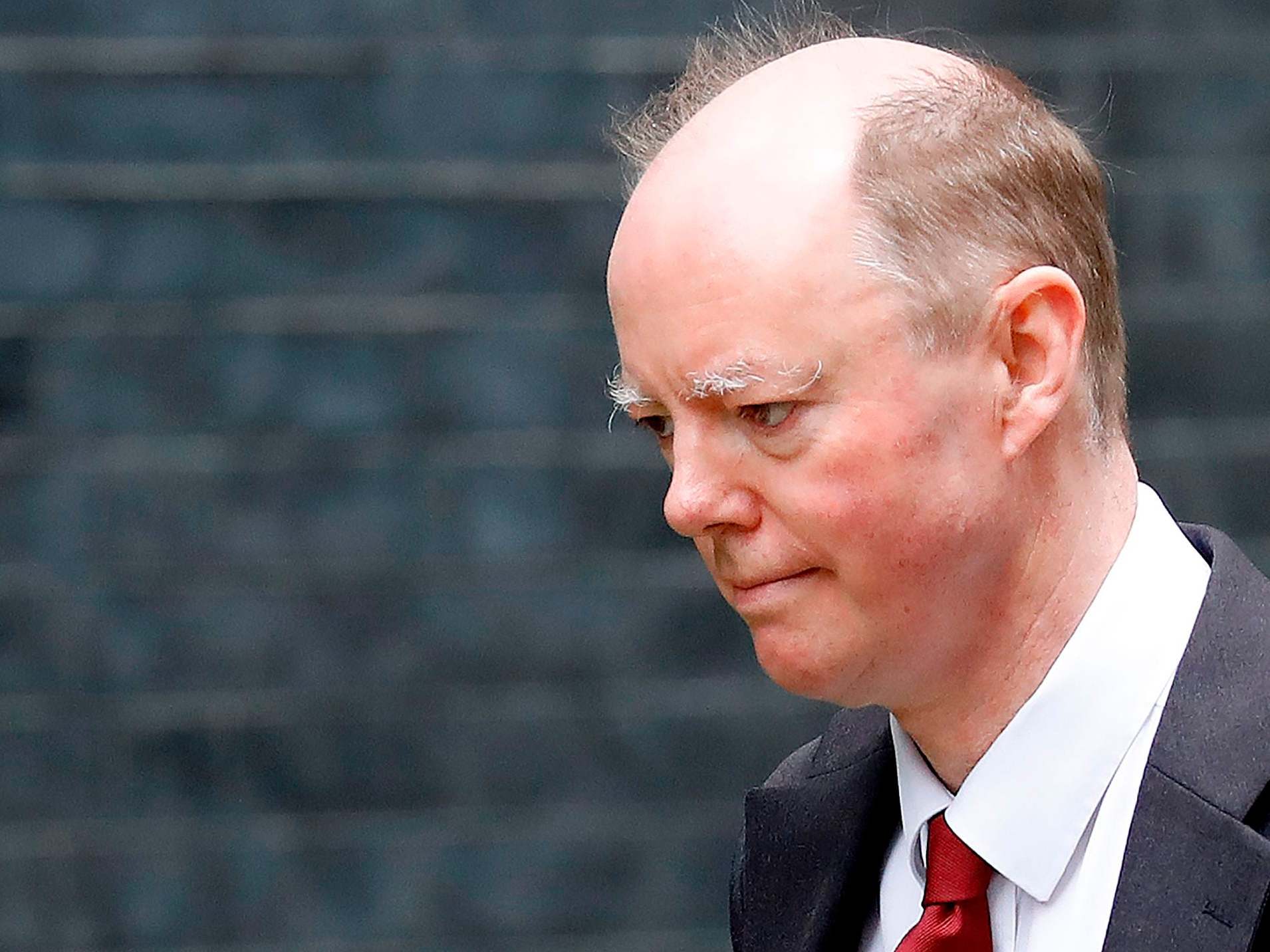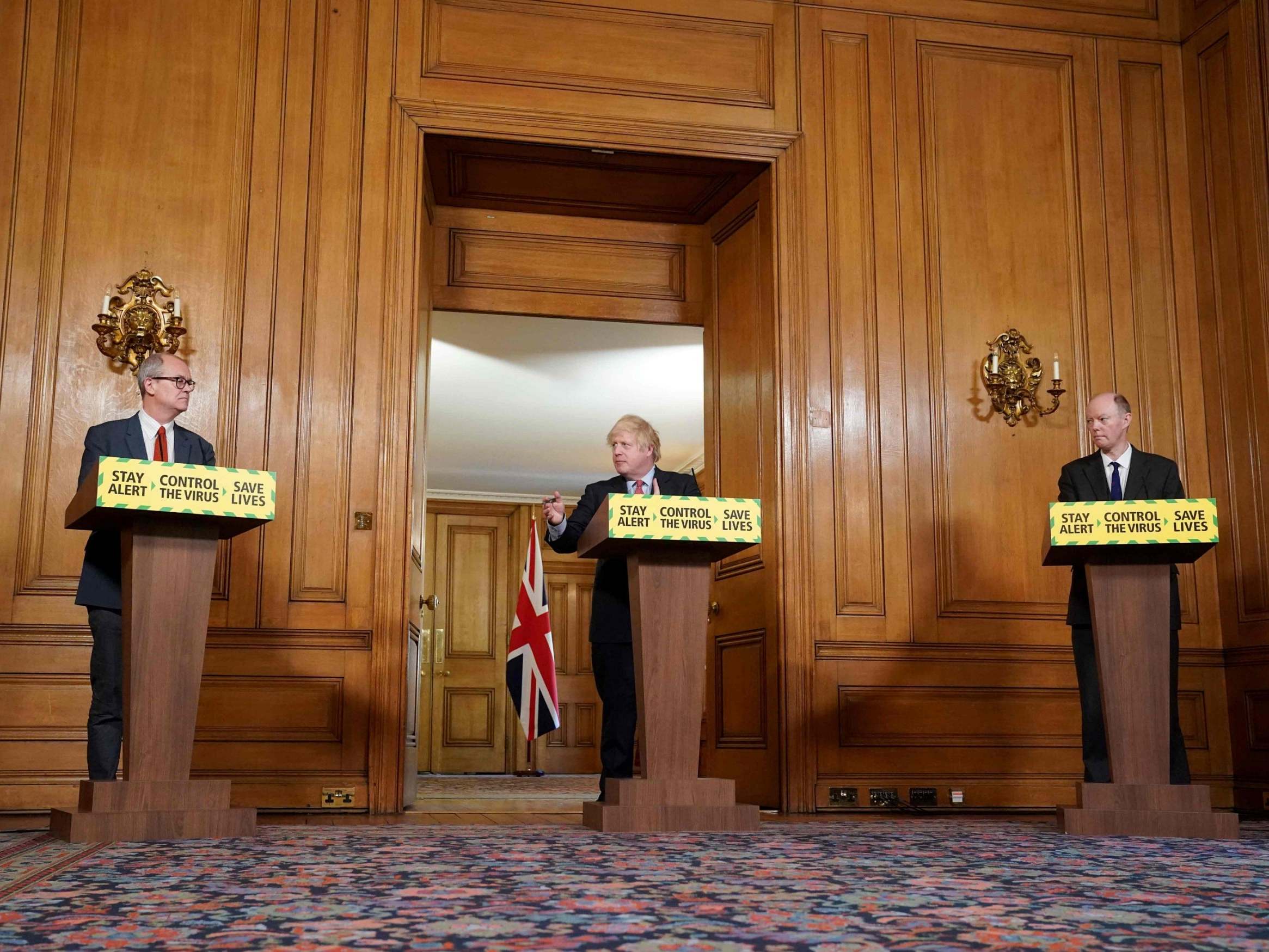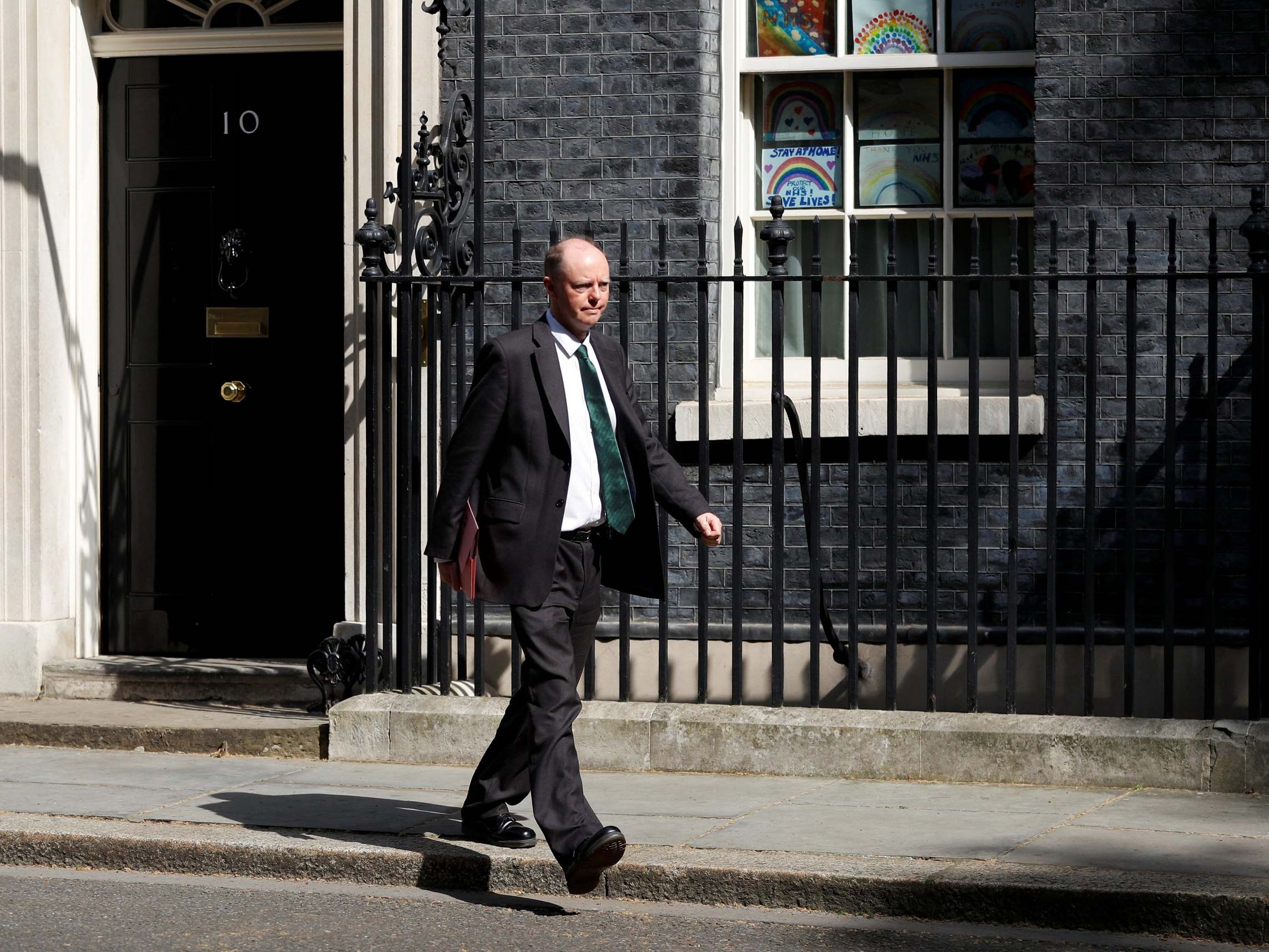Chris Whitty: The man with the health of a nation in his hands
Sean O'Grady looks at the consummate public servant whose life has been touched by tragedy but is now key to Boris Johnson – and Britain’s fight against the coronavirus pandemic


Last year, and pre-Covid, Chris Whitty, now chief medical officer for England and chief medical adviser to the UK government, suggested banning Jammie Dodgers. The biscuits, that is, not the likes of Dominic Cummings. He was joking, of course, which may come as a surprise to those who only see this tall, slim, slightly austere-looking figure in a grey suit explaining sombre aspects of the coronavirus crisis. Resembling a long lost brother of Chris Grayling, his colleagues speak admiringly of his “warm but reserved” manner and his ability to “handle” the politicos. He looks like the kindly doctor he is, enjoys a drink with friends and colleagues, is personable and plays tennis badly. You may guess from the rumpled suit he is not a vain man. Beyond that, he is a very private person, as they say.
Back to biscuits, though. Whitty was wielding the figurative Jammie Dodger during an address to the Medical Research Council, and was, as you’d expect, making an insightful point. Whitty has spent his entire working life in medicine (mostly specialising in blood and infectious diseases), public health and, for the last 11 years, advising governments of all three parties. He was sharing the benefits of that experience with his audience by constructing a simple analytical framework – a triangle to help them get the best from their dealings with politicians and officials, or play the system if you like. On one side, you ask how strong is your scientific evidence. The second side is a measurement of how difficult your advice would be politically – popularity or expense, or both. The third is how big an effect your initiative would have. The Jammie Dodger would thus probably not be banned because it would be politically impossible to convince the public, and the marginal effect on childhood obesity, say, would not be worth the effort, even if the scientific assessment of the nutritional value of a jam and custard biscuit sandwich is reasonably sound. So don’t ask Boris Johnson to ban them. (As if).
The more serious point here is also pointed up by another remark Whitty made in his talk: “There is no policy problem I have dealt with which can be answered with a single discipline and most of them require multiple ones.” The wisdom of that can be readily seen in the current crisis. The involvement of social scientists in advising ministers about the lockdown measures, and their easing, is something Whitty has encouraged on Sage and its sub-committees. Reading between the lines, it might, for example, explain why the formal hard lockdown arrived, in some eyes, “late” – a judgment call about how long people would put up with voluntary house arrest. It is not a scientific or purely clinical matter.
This would also account for why Whitty has spent much of his life collecting qualifications in the law (Northumbria University), economics (Open University), and an MBA (Herriot-Watt), to complement his formidable array of medical qualifications (Oxford and the London School of Hygiene and Tropical Medicine), practice consultancies and professorships. His public lectures for Gresham College also demonstrate a real passion for social history as well – because the plagues and pandemics that occupy Whitty’s waking hours have always has such a massive and far-reaching social effect. After all, the plagues of the 14th century killed about 100 million people – then four tenths of the world’s total population.

Whitty is a genuine scholar, a collector of knowledge and that newly fashionable figure: the expert, and one with a global reputation. Now, spending so much time advising the cabinet, we may think of him, to borrow a medical term, as the antidote to Dominic Cummings, a poundshop polymath if ever there was one.
He seems an effective antigen, too. Along with his counterparts in Scotland, Wales and Northern Ireland, he vetoed the downgrade in the coronavirus threat level some in government, including Johnson, were lobbying for as a precursor to easing the lockdown. Ministers were left to attempts to say it was “transitioning” from four to three, and with very modest steps. The old adage is that “advisers advise, ministers decide”, but clearly in reality things are not so clear-cut. Whitty’s influence in this crisis cannot be understated.
Still, he is enough of a bureaucrat to know how far to push things. At the height of the Cummings affair, Whitty and Sir Patrick Vallance, chief scientific adviser, were observed going into Downing Street to be the wingmen for the prime minister’s difficult press conference. Then they were spotted leaving, plainly because they refused to back Cummings’ actions and the infamous trip to Durham. A few days later the “two gentlemen of corona” did stand with the prime minister but were relieved of answering any Cummings-inspired questions: an uncomfortable but necessary compromise for all sides.
It’s probably no exaggeration to say that Whitty’s resignation would bring down Boris Johnson – and that can be said today of no one else. Whitty, though, is skilful enough to avoid getting near to that point, and has little wish to do so, not least because of his sense of public duty.
Unmarried and child-free, Whitty is the consummate public servant, either in academia or government. It’s not fanciful to think some of this, as well as his internationalism, is inspired by his late father, Kenneth, a diplomat. Christopher John MacRae Whitty may have been born Gloucester in 1966, but he spent his early years in northern Nigeria. By the time Chris was in his teens his father and mother, Susannah, had moved to Athens where Kenneth was deputy director of the British Council. Kenneth was driving back from work through Athens one day with some colleagues when the car was waved down and a gunman shot him and a librarian dead. It was a Palestinian terrorist, apparently on the orders of Abu Nidal. They had been aiming assassinate the local MI6 officer, but he had recently sold his car to Kenneth. Chris was 17 years of age.

His time in Africa as a young boy would have introduced him to malaria and other illnesses, and later, when working as a professional in the region he also saw the effects of another pandemic – Aids, which took off on the 1980s, with its very high mortality rate. He later said: “Watching one third of people die was quite a depressing experience, including many of my friends and colleagues.” When he joined the Department for International Development in 2009 (his first post in central government) he had to deal with the appalling outbreak of Ebola, which threatened to spread far wider than it has. It was the first time he’d been invited to attend Cobra, by his predecessor, Sally Davies, and he was so good he came to every subsequent meeting on the crisis.
Whitty also dealt with the outbreak Mexican “pig flu”, the Mers outbreak in Saudi Arabia, a disease incubated in camels, and the 2009 influenza outbreak – a “near miss” pandemic. He’s acutely conscious that so many of our contemporary infectious diseases originated in animals – bats, chimps, camels, swine, birds – and jokingly remarked once that, “being human, we prefer to blame foreigners” for our problems, as when syphilis, commonplace between about 1500 and 1950, was known as the French Pox. Donald Trump, we may note, calls Covid-19 the “Chinese virus”.
Whitty’s professionalism, rationality and common humanity is most offended by the loss of life, especially among children, from the outbreak of cholera in Yemen. Speaking to a Gresham College audience once you could see a cold anger, even – “this is a disease that should not exist” but with basic sanitation destroyed by war it was making millions ill and killing thousands in that small country. With the bald death stats on a slide, he told his listeners to “look at that and weep”.
His trade is deadly disease and death, and he has been touched by tragedy himself, but Whitty has retained the bright temperament once noted by a house master at his school, Malvern College – “a very nice, easy-going boy – one of those boys that adolescence doesn’t touch”. He boarded there while his father was abroad, and was looked after by his maternal grandmother, Grace MacRae, she herself having pioneered nursing in the 1920s on the Gold Coast, now Ghana.
In his first public appearance with the prime minister towards the beginning of the crisis, Whitty tried to balance the deadly effect and seriousness of the situation – the most socially impactful pandemic in a century – with the actual risks to otherwise healthy individuals: “Let me start off with the most cheery point about this. The chances of any individual person actually dying from coronavirus are actually very low,” less than 1 per cent. He tried to sound (relatively) upbeat again a few weeks ago, but the successive scandals about ventilators, protective equipment, care homes, testing and the Cummings Effect have damaged the reputations of all concerned, including Whitty, it must be said. When the public inquiry comes, Whitty will have to explain his role in the so-called “lost weeks” in March, when testing was abandoned, there was no quarantine or testing of international arrivals, and the lockdown that came later than in other countries. There may yet be a second wave, as historically there often is in pandemics, and the UK has one of the worst death rates in the world. In 2018, Whitty said: “I am asked by ministers, ‘Why can we not predict epidemics and prevent them before they start?’” His answer – “because they come from every direction”.
He warned: “It’s not a question of, ‘Will we have another pandemic?’ We will have another pandemic, it’s really a question of when and how bad.” Now we know the answers to that, but Professor Whitty will have some other, equally difficult questions to answer.
Join our commenting forum
Join thought-provoking conversations, follow other Independent readers and see their replies
Comments